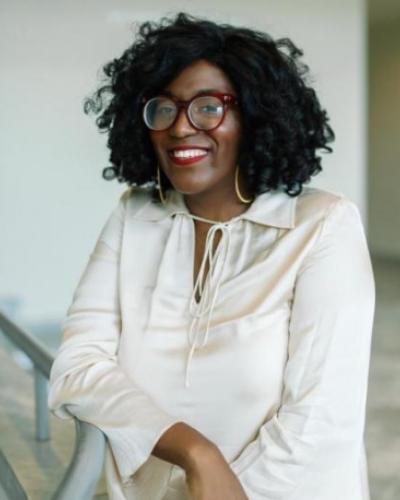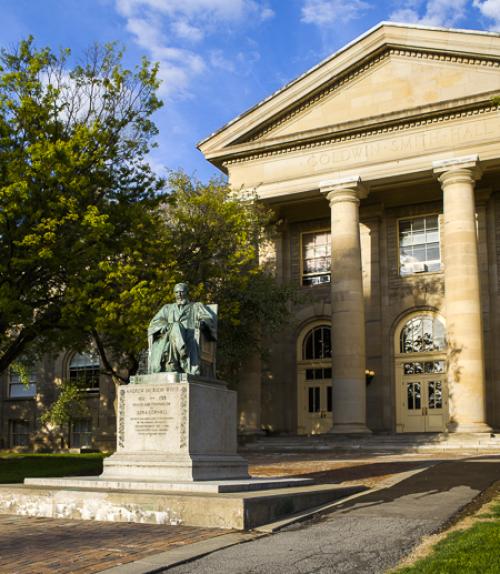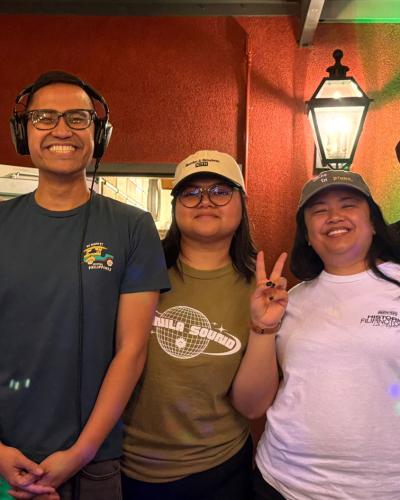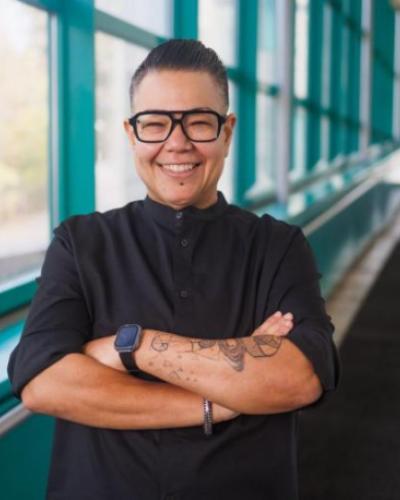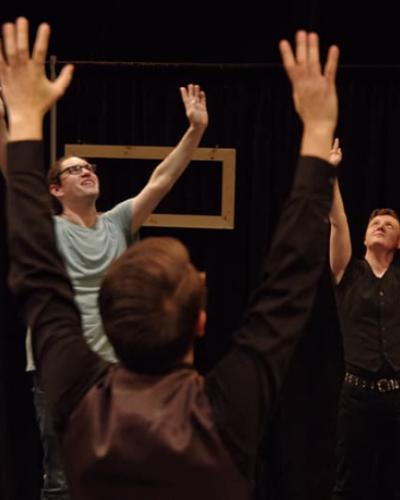Listed below are some of the new and highlighted fall 2017 course offerings from the Department of .
Film Festival Production Lab (PMA 2510)
Instructor: Sabine Haenni
Course Time: TBA
Learn the skills necessary to produce/curate/mount a film festival, from planning to execution. The Centrally Isolated Film Festival (CIFF) involves students in all aspects of film festival organization, and welcomes students with skills in particular areas: publicity, design, administration, management, fundraising, solicitation of films, invitation of guests, reviewing films, curating the program, running the event itself. The course may span two semesters. There will be an informational meeting each fall semester to plan the coming year's events and time schedule.
Edge Cities: Celluloid New York and Los Angeles (PMA 3441)
Instructors: Sabine Haenni and Mary Woods
Course Time: W 10:10 a.m.–12:05 p.m.
Anchoring the east and west coasts, New York and Los Angeles have been celebrated and excoriated in films. On the edge literally and metaphorically, these cities seem to be about competing visions of urban form, culture, and modernity. And the iconic forms of New York (tenements and skyscrapers) and of Los Angeles (highways and suburban homes) have fascinated film makers from the 19th century to the present day. We will both evoke and complicate the contrast between New York and Los Angeles by mapping the intersections of each city with cinema. We explore how the urban experience has been said to give rise to particular cinematic forms and the ways in which cinematic styles may be translated into urban design. Topics may include density and sprawl; place and creativity; class and ethnicity; race and gender; culture and commercialism; industrial and media economies; and insularism and cosmopolitanism. Screenings will include documentary, experimental, and commercial films and cover such genres as early actualities, city symphonies, film noir, science fiction, etc. Readings will be drawn from theories and histories of film, urbanism, and architecture.
(History/Theory/Criticism rubric)
Introduction to African American Cinema (PMA 3461)
Instructor: Samantha N. Sheppard
Course Time: MW 1:25 p.m.–4:25 p.m.
This course explores the rich and diverse history of African American filmmaking. Focusing on films written and/or directed by African Americans, this seminar traces the history of filmmaking from the silent era to the present day. In exploring Black cultural production and creative expression, students will consider the ways in which film is used as a medium of protest, resistance, and cultural affirmation. We will look at films through the critical lenses of race and representation in American cinema while locating our analysis within larger frameworks of Hollywood's representation of African Americans and various cultural and social movements within local and global contexts.
(History/Theory/Criticism rubric)
Contemporary Television (PMA 3463)
Instructor: Samantha N. Sheppard
Course Time: MW 10:10 a.m.–12:35 p.m.
This course considers industrial, technological, and cultural issues, approaches, complexities, and contradictions in the contemporary television landscape. As television has changed drastically over the past twenty years, this course provides students with a deeper understanding of the changes in narratives, technologies, forms, social meanings, representational politics, ideological effects, and platforms that shape, fragment, structure, and restructure the televisual world. Students will grapple with how “new media” forms such as web-series and on-demand internet streaming services (such as Netflix, Hulu, and Amazon) have changed television. We will balance our look at television shows with nuanced readings about the televisual media industry using approaches from critical race, feminist, and queer studies. By watching, analyzing, and critiquing the powerful medium of contemporary television through a cultural studies lens, students will situate their understanding within a broader consideration of the medium’s regulation, production, distribution, and reception in the network, multi-channel transition, and post-network eras. We will read a range of texts including scholarly books and articles, periodicals, and reviews.
(History/Theory/Criticism rubric)
Introduction to Visual Storytelling (PMA 3570)
Instructor: Dehanza Rogers
Course Time: M/W 1:25 p.m.–4:25 p.m.
An introduction to filmmaking, students will learn to create compelling characters, as well as develop strong storytelling skills through basic character and story development and breakdown, cinematography, lighting, sound, and editing.
Over the course of the semester, students will deconstruct and analyze visual culture in an effort to learn effective techniques in visual storytelling. Students will write, shoot, and edit a series of dramatic narrative exercises, participating in the preproduction to post-production processes. Students will collaborate and rotate through various roles.
The course will culminate with the screening of the various course projects, in a public, open-campus event at the end of the semester.
(Creative Authorship rubric)
Documentary Filmmaking (PMA 3571)
Instructor: Dehanza Rogers
Course Time: M/W 10:10 a.m.–1:10 p.m.
Students will view selected documentaries and discuss styles, themes, ethics, as well as modes of production. Over the course of the semester students will pitch ideas, conceptualize, shoot, and edit a short documentary film.
The course will culminate with the screening of final course projects in a public, open-campus event at the end of the semester.
(Creative Authorship rubric)
Staging Faith: Contemporary Theatre and Lived Religions (PMA 3747)
Instructors: J. Ellen Gainor and The Rev. Dr. Clark R. West
Course Time: W 10:10 a.m.–12:05 p.m.
Religious beliefs, practices, and conflicts shape our world and influence global politics. Yet mediatized depictions of religion can be reductive and polarizing. Moreover, these depictions may be different from what people experience in their everyday lives where religion and spirituality form part of a complex intersectional identity. In the contemporary theatre, we have the opportunity to consider representations of individuals’ lived religion, the complex questions of belief, and challenges to faith from within and outside religious communities. Through close readings of plays and related materials engaging with Christian, Jewish, Muslim, Sikh and other faith traditions, we will explore and discuss together the religious motivations, tensions, and dilemmas facing us today. Our texts include, among others, Jesus Christ Superstar, Disgraced, Angels in America, Behzti, Indecent, and Harry Potter and the Cursed Child.
(History/Theory/Criticism rubric)
Playwriting I (PMA 3805)
Instructor: Aoise Stratford
Course Time: T/TH 11:40 a.m.–12:55 p.m.
In this introductory class, students will study elements of successful dramatic writing: strong structure, effective dialogue, and imaginative theatricality. Students will craft and revise short plays, in addition to drafting several short assignments and one analytical paper. Readings include full-length and 10-minute plays. Through giving and receiving constructive feedback, each writer will aim to take their work to new levels of complexity, theatricality, and meaning.
Stage Combat: Technique, Staging, Analysis (PMA 3885)
Prerequisites: PMA 2800 and/or PMA 3880
Instructor: Theo Black
Course Time: T/TH 10:10 a.m.–12:05 p.m.
This course explores stage combat as a unique form of dramatic storytelling. Students learn fundamental techniques of stage combat (armed and unarmed) while exploring stage combat as embodied knowledge. Building upon fundamentals from acting and directing courses, students will engage with dramatic texts and improvised scenarios to consider interpretive choices around enacted violence. Through research, readings, and viewings from across performance history, students will discover that combat choreography incorporates all essential elements of theatre: theme, plot, character, rhythm, language, and spectacle. Research assignments will also demonstrate the intersections and changing representations of identity roles in relation to "winner" and "loser" in stage combat. All techniques taught/performed under Society of American Fight Directors safety guidelines.
(Embodied Performance rubric)
On Location: Cinema, Media and Place (PMA 4501/6501)
Instructor: Amy Villarejo
Course Time: W 2:30 p.m.–4:25 p.m.
This seminar proposes a deep investigation into the relationships among cinema, new media and place by bringing questions arising from the field of cultural geography into conversation with media theory. We will be interested in the role of the body in the affective properties of media, the production of place in urban and rural contexts, the development of post-Fordist and post-human geographies, the visual and aural making of “nature” and landscape, and the histories of place in visual culture.
Theater and Social Change: Climate Crisis (PMA 4825/6825)
Instructors: Sara Warner and Godfrey Simmons in collaboration with Toby Ault and Sarah K. Chalmers.
Course Time: F 1:25 p.m.–4:25 p.m.
A collaboration between Cornell , CALS, and Ithaca’s Civic Ensemble theatre company, this course brings together students with an interest in applied theatre and with researching and practicing socially engaged performance.
Funded by a grant from Engaged Cornell, this year’s focus will be the impact of climate change in/on the Finger Lakes. Students will learn how to conduct Story Circles, a form of community-based dialogue, with a diverse range of local residents (from scientists and skeptics to farmers and pro/anti-frackers).
We will craft this ethnographic research into a Living Newspaper, a type of multimedia performance that we will stage for audiences on campus, as part of the PMA events calendar, and across the city. These performances will be followed by curated talkbacks with the actors, Story Circle participants, and members of the Climate Action Advisory Group.
No previous theatrical experience is necessary to take part in the course. We meet Fridays 1:25 p.m.–4:25 p.m. with evening rehearsals and performances starting in mid fall.

